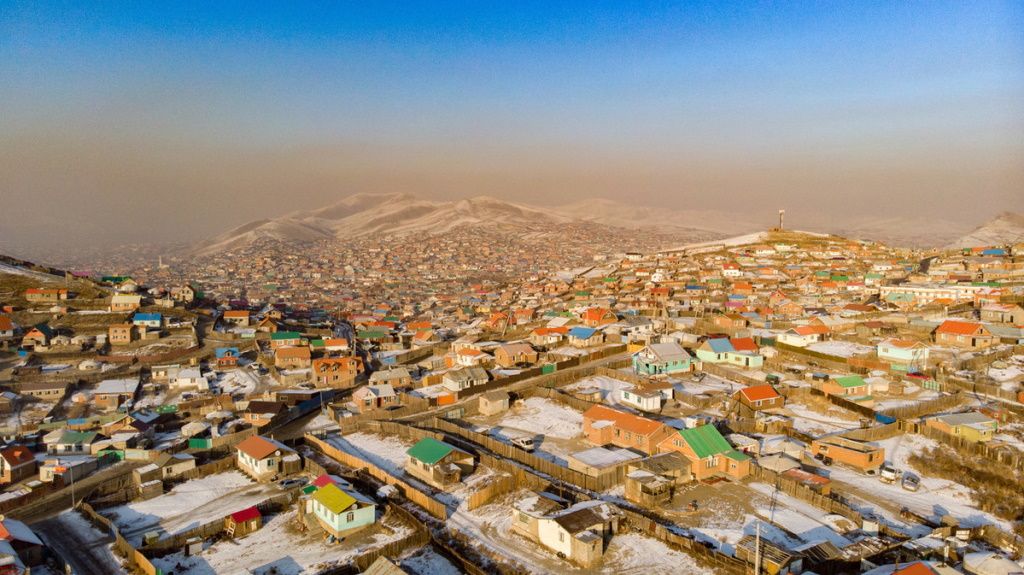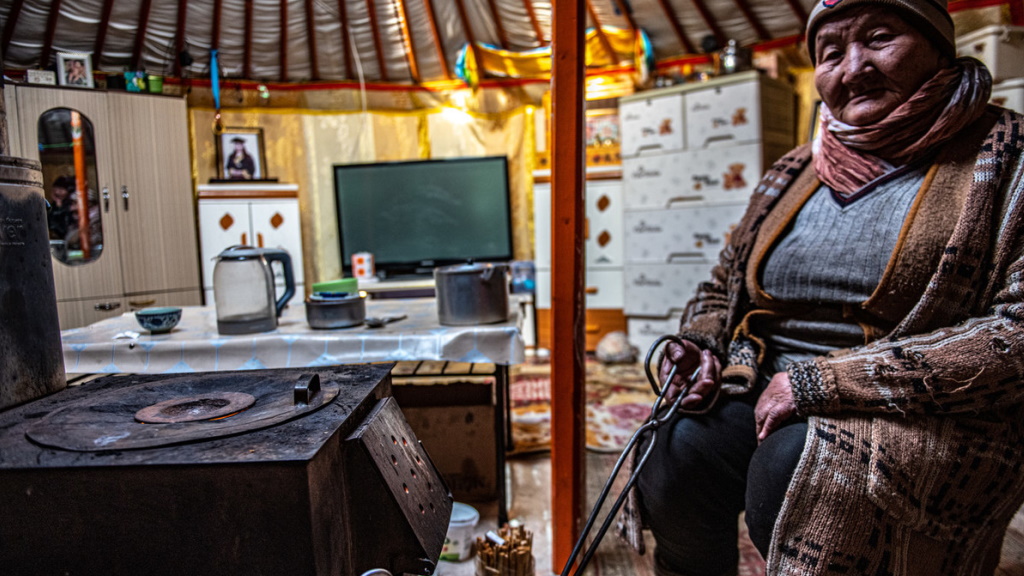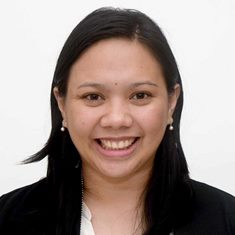Others
Mongolia's Ulaanbaatar Breathes Easier After Cleanup of Air Quality
Pima O. Arizala-Bagamasbad 17 Dec 2021
Ulaanbaatar is the most polluted capital city in the world. Many residents live in ger areas, where raw coal has been used for cooking and heating during winter months.
The Ulaanbaatar Air Quality Improvement Program of the ADB was implemented in two phases to boost public health and living standards by improving the air quality in the capital city.
With ADB’s help, reforms to reduce air pollution and protect human health were implemented in Ulaanbaatar.
Heart disease, pneumonia, and tuberculosis – these are just some of the diseases aggravated by the already hazardous level of air quality in Ulaanbaatar, the capital city of Mongolia. Children and pregnant women are particularly vulnerable to pollution, which can stunt fetal growth, cause preterm birth, impair brain development, and lead to chronic respiratory diseases and premature deaths.
Some 46% of Ulaanbaatar’s residents are living in informal ger areas, or informal urban settlements, where raw coal has been primarily used for cooking and heating during winter months in what is on record as the coldest capital city in the world.
This leaves Ulaanbaatar also as the most polluted capital in the world. Average concentration levels of particulate matters and sulfur dioxide in the city during December 2015 and January in 2016 were up to 10 times higher than the limits recommended by the World Health Organization.
According to a 2019 study for the United Nations Development Programme, the welfare costs of air pollution are estimated at $486 million annually, the costs of lost productivity at $58 million, with a combined cost equal to 5.6% of Mongolia’s gross domestic product.
To address this issue, the government adopted the National Program for Reducing Air and Environmental Pollution in March 2017, with the ultimate target of 80% air pollution reduction by 2025.
Cleaning up the Air
In support of the national program, the Ulaanbaatar Air Quality Improvement Program of the Asian Development Bank (ADB) was implemented in two phases from March 2018 to December 2020 to improve air quality in the capital city.
The project’s aims were to boost the government’s National Program and the regulatory framework on air quality management; implement urgent measures to reduce air pollution and protect human health in Ulaanbaatar; and establish new mechanisms for environmentally sound and integrated urban, energy, and transport systems.
Under the first phase of the program, ADB provided a policy-based loan of $130 million. Phase 1 was instrumental in supporting the ban on raw coal burning by piloting of coal briquettes and establishing technical standards for vehicle pollution.
Phase 2 then embedded the strategies developed under Phase 1 into Mongolia’s legal and regulatory framework, supported by a policy-based program loan of $160 million approved in December 2019. According to ADB Senior Economist Annabelle Giorgetti, urban air pollution was reduced with the help of the project.
“There was a notable reduction in average levels of particulate matter less than 2.5 micrometers in diameter (PM2.5) and particulate matter less than 10 micrometers in diameter (PM10) during the winter months between November 2019 and February 2020 compared to the same period in 2018–2019,” she says. The average ambient PM2.5 concentrations in the winter of 2019–2020 were 51% lower compared to the winter levels of 2016–2017, 46% compared 2017–2018, and 40% compared to 2018–2019, exceeding the targeted 30% reduction compared with 2016 levels.

Achieving Reforms
The project helped generate political consensus on the need for cleaner coal, with the government announcing a ban on raw coal and preparing for its replacement with cleaner coal. With ADB’s help, the implementation plan action efficiency and air pollution control regulatory framework in Ulaanbaatar was improved. An Air, Environmental Pollution Reduction Equipment, Technology and Information Center was also established at a shopping center.
The Ministry of Environment and Tourism (MET) meanwhile developed and implemented an education and outreach program, targeting at least 50% female participation to increase awareness on air pollution. MET approved a strategy to upgrade Ulaanbaatar’s air quality and emission compliance monitoring networks, including the required financing. It also developed a strategy to upgrade its monitoring capacity.
In August 2020, an Excellence in Design for Greater Efficiencies (EDGE) system was adopted through the Building Code for the Thermal Performance of Buildings. The new building code mandates the application of thermal protection requirements to new buildings, renovation of apartment buildings, and public, industrial, and warehouse buildings.
Key measures on air pollution reduction and health protection were implemented under the project. The government adopted resolutions to disband 68 heating boilers and connect consumers to the central heating system.
The Ministry of Energy (MOE) procured 80,000 tons of semi-coke briquettes, or lower-emitting fuel, for distribution to households in Ulaanbaatar ger areas, targeting the poor and households headed by women.
The program supported other development partners’ initiatives, including promotion of energy efficiency and awareness raising on indoor air pollution, health impacts and mitigation measures. It also complemented other ADB investment in the urban sector aimed at promoting better urbanization for improved air quality outcomes.
Environment and Health
The government allocated budget to ensure pneumococcal conjugate vaccine for about 40,000 children in Ulaanbaatar. The PCV13 vaccine was administered nationwide in three doses to children under the age of 1. “As vaccination was conducted nationwide for children, pregnant women, and elders, the coverage well exceeds the target of 60% of all children and pregnant women,” says ADB Senior Urban Development Specialist Maria Pia Ancora. “Nationwide immunization was particularly important to help protect the public against COVID-19.”
Through the project, mechanisms for environmentally sound and integrated urban and energy systems were also implemented. On January 2018, the State Secretary of MOE submitted a work plan to carry out urban planning, energy policy coordination, and energy saving programs aimed at reducing greenhouse gas emissions. Two new credit guarantee products to small and medium-sized enterprises undertaking green and energy-efficient projects were also created in February 2018.
The National Committee and MET operationalized the green financing mechanism, subsidizing loans to eligible low-income households and entities to promote the use of electric heaters, insulation materials, clean heating solutions, improved stoves, and other clean and green solutions to reduce air pollution and improve living and working conditions in ger areas. Preferential access was given to women.
“Through continuous implementation of all policy actions, the program has achieved improved air quality, cost savings, and socio-economic and health benefits,” says ADB Country Director for Mongolia Pavit Ramachandran. “By cleaning the air quality in Ulaanbaatar, public health and living standards were improved. Other secondary cities in Mongolia facing similar air pollution issues are going to benefit from this successful approach in Ulaanbaatar.”
Author

Pima O. Arizala-Bagamasbad
Associate Communications Officer, Department of Communications, ADB
This article is reproduced from Asian Development Bank.


